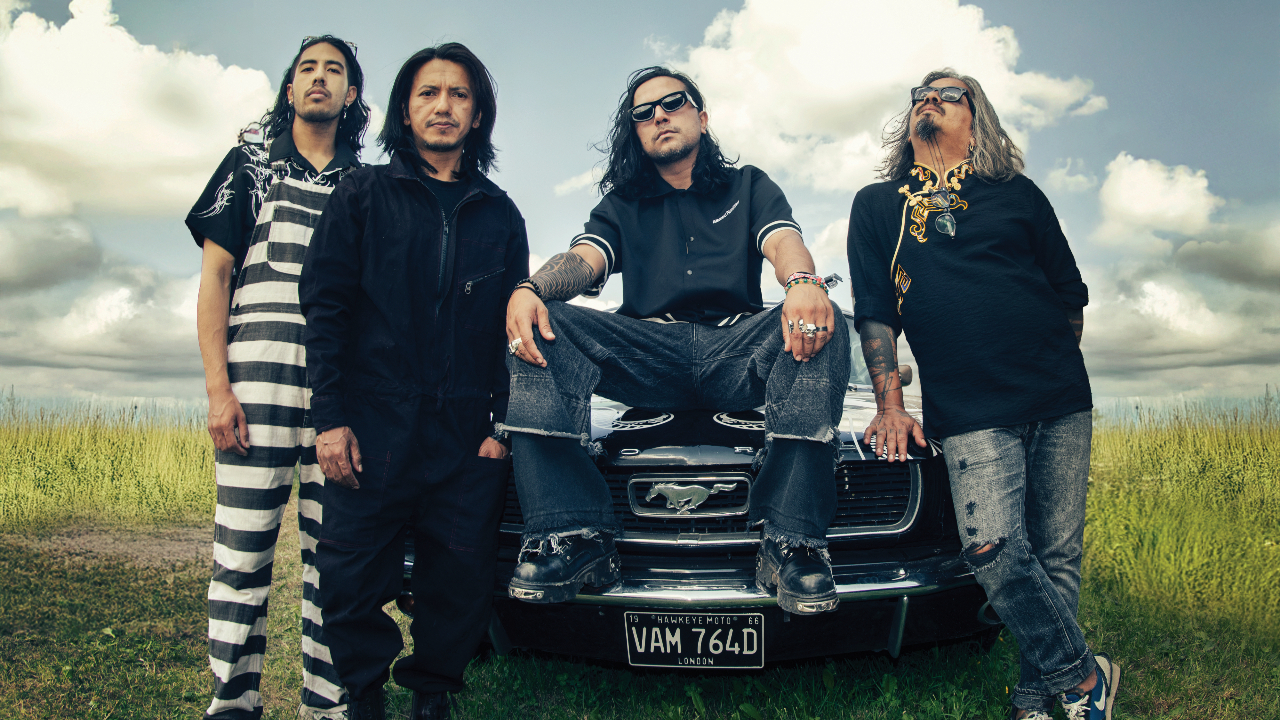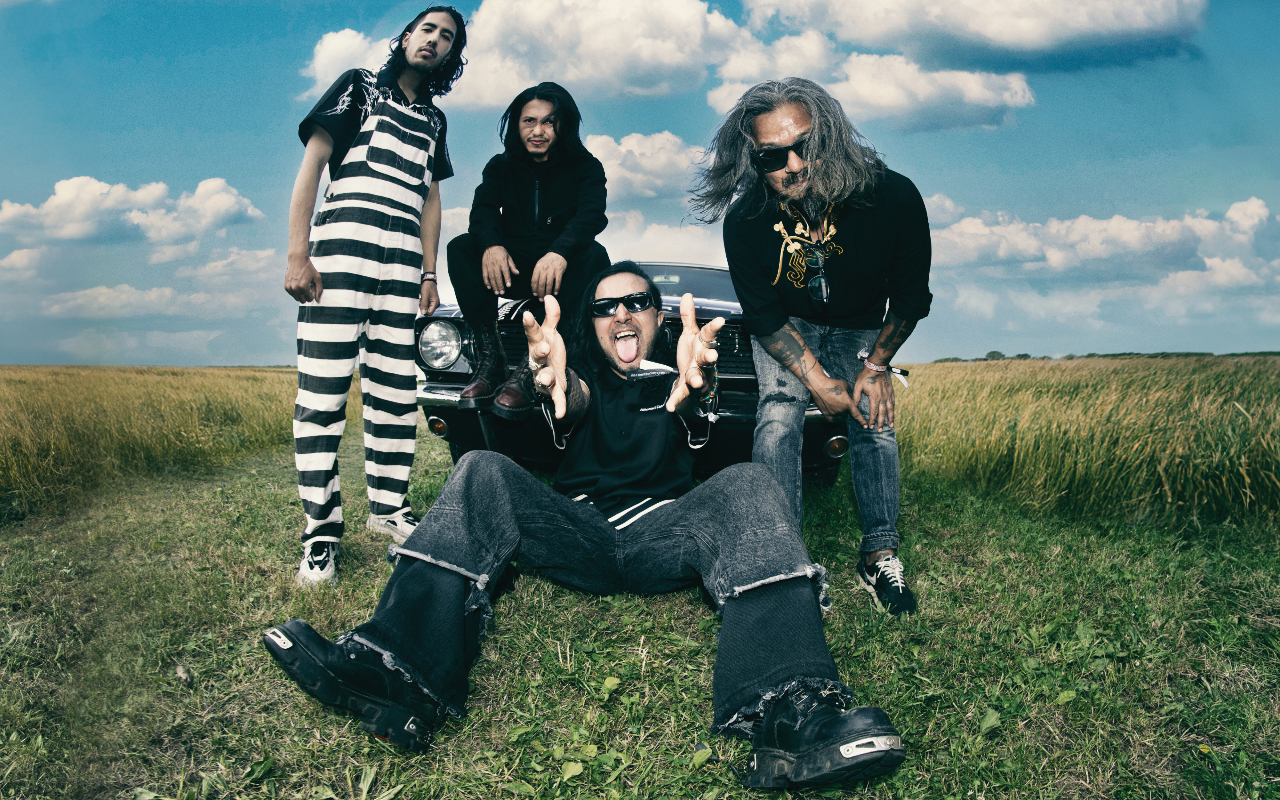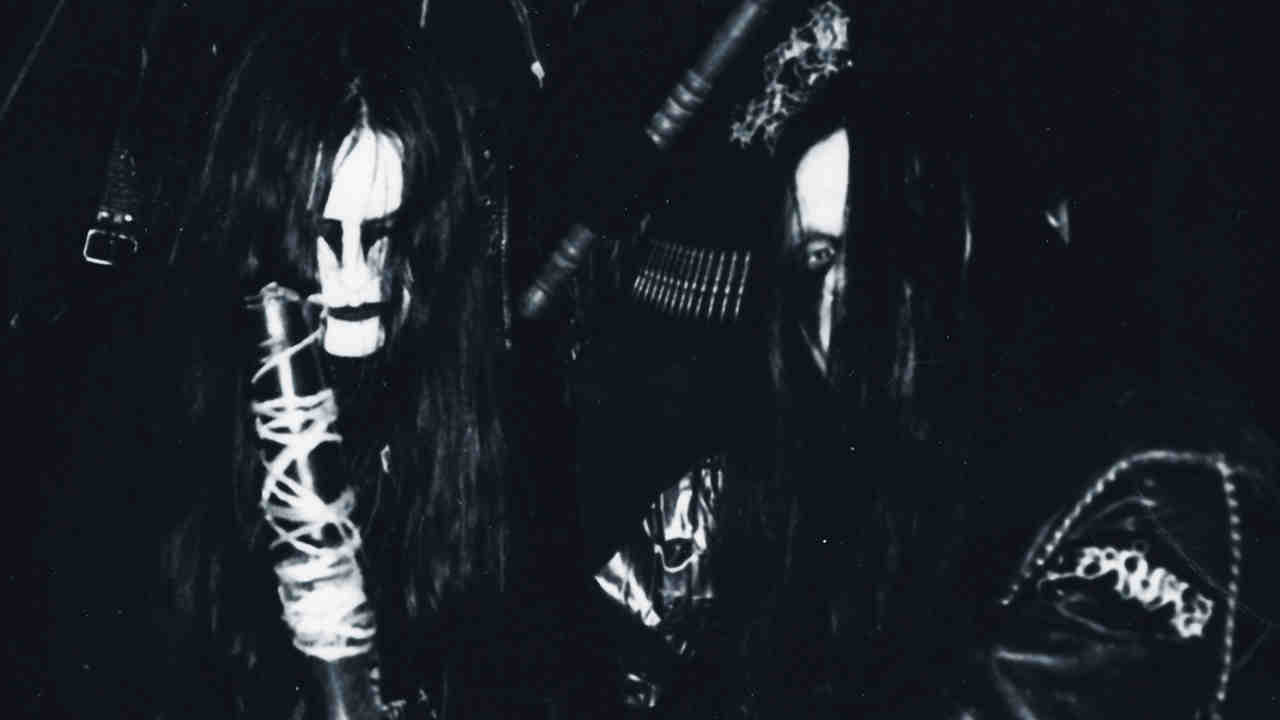"Some kid is driving inside the residence of the president, and you’ve got girls making TikToks in front of burning buildings." Deadly earthquakes, addiction and revolution: the story of Underside, Nepal's biggest metal band
Nepal's Underside have had to overcome all manner of trauma and chaos to keep pushing their message and their music to the world

Select the newsletters you’d like to receive. Then, add your email to sign up.
You are now subscribed
Your newsletter sign-up was successful
Want to add more newsletters?

Every Friday
Louder
Louder’s weekly newsletter is jam-packed with the team’s personal highlights from the last seven days, including features, breaking news, reviews and tons of juicy exclusives from the world of alternative music.

Every Friday
Classic Rock
The Classic Rock newsletter is an essential read for the discerning rock fan. Every week we bring you the news, reviews and the very best features and interviews from our extensive archive. Written by rock fans for rock fans.

Every Friday
Metal Hammer
For the last four decades Metal Hammer has been the world’s greatest metal magazine. Created by metalheads for metalheads, ‘Hammer takes you behind the scenes, closer to the action, and nearer to the bands that you love the most.

Every Friday
Prog
The Prog newsletter brings you the very best of Prog Magazine and our website, every Friday. We'll deliver you the very latest news from the Prog universe, informative features and archive material from Prog’s impressive vault.
Underside guitarist Bikrant Shrestha was at home in Kathmandu with his five-year-old daughter when the earthquake struck on April 25, 2015. Its magnitude was 7.8, and the epicentre was 60km northwest of the city. More than 600,000 structures were damaged or destroyed, and around 9,000 people were killed.
“Oh, it was terrible, seriously,” remembers Bikrant. “And then the second one happened, the next day.”
“That one I was there for,” adds frontman Avishek KC, who had hung back in London for a week after the band played the Underworld with Swiss band Voice Of Ruin, not knowing he’d be returning home to a disaster zone. “I lost some friends.”
The pair turned that shock and grief into action, raising money for the relief effort via social media, while their friends in Voice Of Ruin organised a series of benefit shows under the banner of Metal For Nepal. Underside worked with an organisation called People In Need from the Czech Republic, helping to physically build more than 300 homes in the district of Gorkha.
“Some places were horror stories, like Langtang Valley – the whole valley disappeared,” says Avishek, of the popular trekking area north of Kathmandu. “Now they have a whole new area.”
Ten years on, and we’re speaking to Bikrant and Avishek backstage at a bustling, sunny Download festival, a world away from the tragedy of 2015. Underside’s career hasn’t been without setbacks, though. Post earthquake, they were gathering momentum again and made their Download debut in 2019, but Covid hit before they could release new album What Divides Us.
In 2024, they had to cancel an appearance here due to visa issues. Now they’re having a third push at breaking out. Last month, they finally released What Divides Us with a big hometown show, and they’ve just played the Dogtooth stage for a sizeable crowd who did the biggest wall of death we’ve seen there all weekend.
Sign up below to get the latest from Metal Hammer, plus exclusive special offers, direct to your inbox!
“This is the third crusade, so it’s a good start,” smiles Avishek. “It could have sucked and we could have been so fucking depressed. But no, the album launch was great. It’s five years old, but we did what we can and released it, and it’s a good energy we’re going to be leaving with today.”
Underside formed in 2010, when Bikrant and Avishek found each other in the local scene. Bikrant had returned from Switzerland – where he had studied graphic design and opened two restaurants – to become a producer, and decided to start a music festival called Silence. When he started looking for Nepali metal bands, one name kept coming up: E.Quals, featuring Avishek and guitarist Pandu (Bikash Bhujel). But the groove-infused thrashers were about to split up. That’s when those two started jamming with Bikrant, and Underside was born.
Bikrant, a decade older than Avishek, who was 21 when they met, had got into metal via tape trading with friends in India in his late teens, but alongside an obsession with heavy riffs and new heroes Pantera had come an addiction to drugs.
“There were a few magazines that we would buy, and I’d read all the stories about these vocalists and stars who got into drugs,” he says. “I would experiment, in my friends’ circle.”
“Their generation is one generation above us,” Avishek cuts in. “For other people in my family, it was a problem at that time, with all the youths. We fell into it, but with their generation it was a real problem, coming from the Indian borders – a lot of drugs being pushed in, and people dying.”
“It was a hard world,” picks up Bikrant. “We were desperate to find something fun. And then drugs came into our life, and it was like, ‘Wow, this is fun! I can play guitar for hours and hours.’”
Bikrant went to a rehab centre for six months, before working there for almost a year. He was 22. “I was middle class, but when it comes to drugs, no one’s going to help you – not even your family,” he says. “I was lucky enough that I got through.”
Due to his past, Bikrant saw signs of addiction in Avishek, who would sleep in all day and then race to an Underside show on his motorbike, hoping to make it to the stage on time. When the vocalist was 23, Bikrant sent him to rehab too.
“I was a brat,” says Avishek. “I was running from him for months – for months he was trying to find me! I’d see him on a bike and be like, vroooom! Eventually I wake up, and he’s right there with my sister and my mum… but he saved my life. And it was like, ‘You’re going today, you don’t have an option.’”
The pair clearly have a bond. Bikrant, in a leather jacket, looks every inch the cool, laidback biker/metaller, and speaks only when he’s spoken to, preferring to sit back and take it all in. Avishek is like his chatty younger brother, taking the lead on answering questions. Both are unfailingly polite and super grateful to be here.
Does Bikrant feel paternal towards Avishek?
“Yeah of course, we’ve been so close for so long.”
“He’s like the father figure for everyone,” says Avishek. “We’ve been together quite a long time, through all the highs and lows. Like a family, we’ve survived. It could have ended so badly, these things could have gone sideways. The earthquake thing that stopped the band, and the Covid thing that stopped the band again… when we say we’re going to release something, something happens!”

If the earthquake was devastating for Kathmandu and the surrounding areas, Covid threw the whole country into crisis. Migrant workers were forced to leave India and return home, leaving many stranded at the border without food and water. Underside snapped into action again, helping to raise money and working with charities to feed people. They also held Miles To Meals, a sponsored 104.4-mile walk west from Kathmandu to Chitwan, where they distributed monthly ration supplies to 70 families of locals in the tourism sector who had been affected by the pandemic.
The band and their manager, Flower, have since made Metal For Nepal a registered charity, and have run projects such as Warm Smiles, delivering coats to children in the Himalayan belt of Nepal. They’ve also linked up with tattooists, who have produced original artwork that’s been exhibited and sold to generate funds.
Metal For Nepal’s next venture is Road To Shangri-La, this October/November. Led by captain Bikrant, participants will ride from Kathmandu to the Mustang district. The band have already done a test run with Liam Cormier from Cancer Bats – who have previously played Silence festival – and Alexisonfire’s Wade MacNeil.
“It was sort of like a pilot thing, with the guys,” explains Avishek. “It’s a really beautiful place with mountains, rivers, hills, and you get up to Muktinath, a very holy grail of a temple. It’s one of the places you have to visit before you die. So it has everything in it, you know? And it leads up to the Nepal, China, Tibet border. So it’s a really good ride.”
When the time is right, Underside also hope to restart Silence. It’s not easy putting on a music festival in Kathmandu, and the band have faced permit and curfew challenges from the authorities, who have historically viewed metal with suspicion. It’s been a huge success for the local metal community, though, who get to celebrate their own bands as well as seeing international acts who wouldn’t usually stop off at Nepal. As well as Cancer Bats, Silence has hosted the likes of Testament, Textures, Vader and Sikth. The last edition might have been in 2019, but Underside’s album launch gig showed the appetite is still there.
“Kids are desperate to have a proper festival,” says Bikrant. “It was a good reminder for us to be, like okay…” “… we should push forward,” finishes Avishek.
Three months after Download, on September 8, Kathmandu makes headlines as scores of young people take to the streets to protest against government corruption. Police open fire, killing 19, and the hospitals are overwhelmed with casualties. The next day, angry crowds torch politicians’ homes and government buildings, and the prime minister resigns.
With images of burning buildings appearing on news sites, we videocall Avishek. He went to the initial protest, which was a 10-minute walk from his house, and describes seeing young people and influencers in school uniform, costumes and masks, waving flags from the anime One Piece.
“It was completely started by Gen Zs, and I went there just as a citizen myself, to support this cause,” he explains. “It was a great environment. I saw kids coming in masks, someone that looked like they were at a cosplay event. And then suddenly, there’s shots, and some kid has been shot in the head. The army was deployed and everyone was like, ‘Oh, go home, there’s teargas all round the area, and it’s not safe anymore.’ So we all fell back.”
The next day, Avishek went back out, and the atmosphere had taken a turn into “total anarchy”.
“Some kid has got a police truck full of kids, and they’re driving it inside the residence of the president, and then you’ve got girls in the middle of the road in front of a building burning making a TikTok,” he says in disbelief. “I’m like, ‘What the fuck is going on here’? There were fires everywhere. I’ve seen quite a lot in my lifetime, but I’ve never seen anything like this.”
The protests started after the government announced a ban on social media platforms that had not complied with a deadline to register with them, saying that regulation was needed to tackle fake news, hate speech and online fraud – but many saw this as a threat to free speech. In the weeks leading up to the ban, a ‘Nepo Kid’ campaign had taken off on social media.
Posts highlighted the expensive possessions and holidays of officials’ children, inaccessible to ordinary citizens – especially the unemployed and migrant workers – and accused those in authority of corruption. Similar student-led protests have been taking place in Indonesia.
At the time of going to press, Nepal’s first female prime minister, the former chief justice Sushila Karki, had been sworn into office, promising an “end of corruption, good governance and economic equality”. She will lead an interim government and elections will be held next March.
While many parts of the world are going through political upheaval, few metal bands have experienced unrest this directly, right on their doorstep. While mindful of the tragic loss of life during the protests, Avishek expressed hope about Nepal’s future.
“It was like something out of a movie,” he reflects. “All the good, bad and the ugly side of it. And I think it gave me hope. I thought, ‘Oh, there’s nothing that can be done with this country’. I was turning into one of those people, who had given up on it. But I kind of felt powerful. Not because of the anarchy stuff, but because of the result. It’s not the government’s government, it’s the people’s government. I think if there’s hope in Nepal, there’s hope everywhere in the world.”
See more at Metalfornepal.org. What Divides Us is out now

Eleanor was promoted to the role of Editor at Metal Hammer magazine after over seven years with the company, having previously served as Deputy Editor and Features Editor. Prior to joining Metal Hammer, El spent three years as Production Editor at Kerrang! and four years as Production Editor and Deputy Editor at Bizarre. She has also written for the likes of Classic Rock, Prog, Rock Sound and Visit London amongst others, and was a regular presenter on the Metal Hammer Podcast.
You must confirm your public display name before commenting
Please logout and then login again, you will then be prompted to enter your display name.


